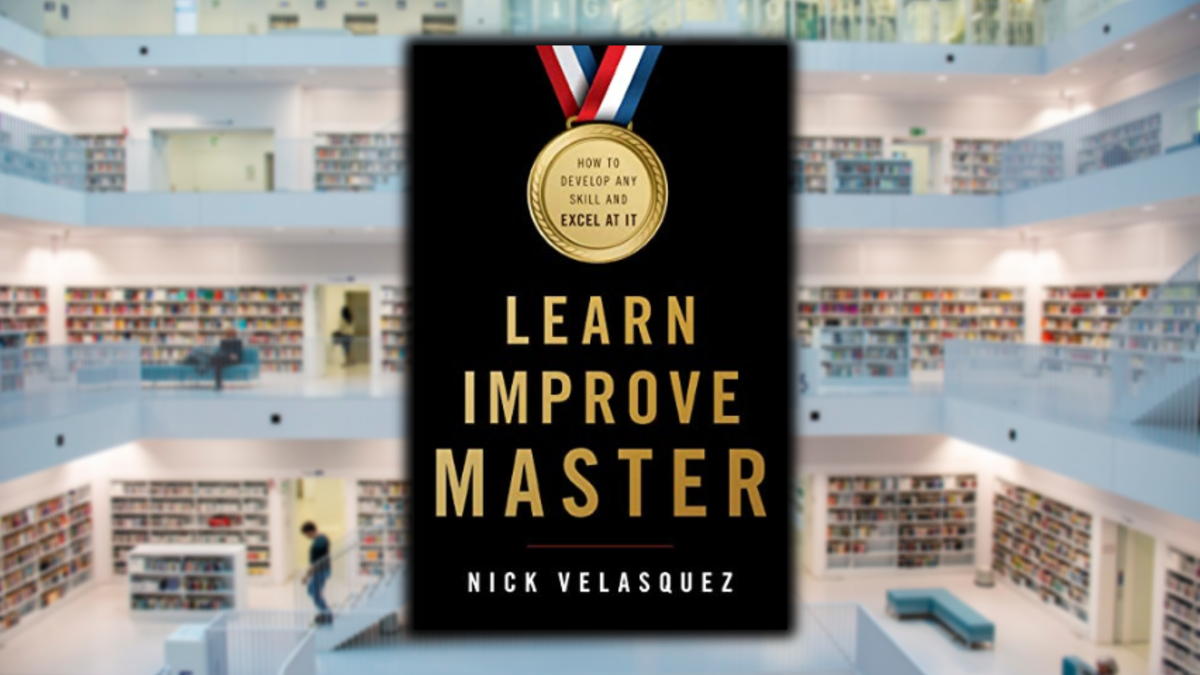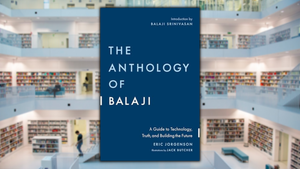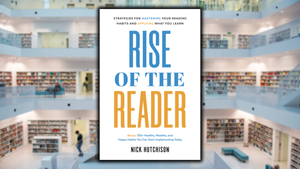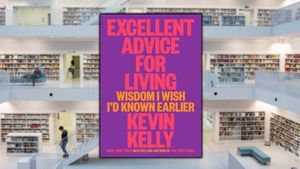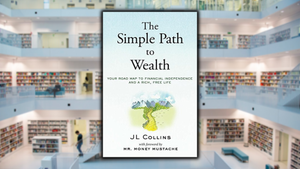
This Book is For:
*Beginners who are eager to develop new skills and expand their horizons, and who want a detailed, step-by-step playbook for gaining mastery, without wasting their efforts on practice strategies that haven't stood the test of time.
*Ambitious students who want to gain a distinct competitive advantage in the modern academic environment, or those students who simply want to pass all their exams with flying colors and with much less time spent studying.
*Passionate, dedicated teachers and coaches who wish to bring the latest science and most up-to-date pedagogical techniques into their classrooms, lecture halls, and training facilities, thereby maximizing the probability of success of the students and athletes entrusted to their care.
*Lifelong learners who want to gain mastery, or at least make astounding progress, in a new pursuit or activity as quickly as possible, and in the most efficient way possible too.
Summary:
“Learning is the greatest power of the human mind. Everything we've built, everything we've created, everything we've become has been the result of our ability to learn. And this great power is inherent in all of us. We are made to learn."
-Nick Velasquez
The athletic, artistic, and intellectual achievements of the great masters have always seemed so...magical. So...unattainable. Beyond anything we could ever hope to replicate. Until now.
In Learn, Improve, Master, Nick Velasquez pulls back the curtain on skill acquisition and mastery and shows that high proficiency and expertise isn't something reserved for a chosen few, but something that's attainable for all of us.
Attainable, that is, if we follow the proven principles of practice and learning as laid out in this book. Attainable does not, of course, mean easy. In choosing to become more than "just okay" at something, we are choosing to commit to a level of discipline and focus uncommon in the eyes of many.
But at the end of the day, the universe rewards effort, exertion, and striving. We need to go beyond what we think we can do if we want to find out how far we can really go. And as Nick reveals in the book, mastery isn't something you'll ever "arrive" at. It's a lifelong process of learning, discovery, and progress, because as they say, behind the mountains are more mountains.
If you've ever seen someone excel at the highest level of athletics; if you've ever seen someone perfectly execute a spectacular dance move, put together a phenomenal meal, or spellbound an audience with a stirring speech and wanted to do that too, this book will work with you to make that a reality.
In the book, you'll learn how to:
- Use your memory like top memory champions and remember anything you want
- Optimize practice like elite musicians, chess players, and athletes
- Build training habits that stick
- Overcome obstacles, setbacks, and plateaus
- Choose mentors and coaches that will help you develop your potential
- Accelerate learning and become a master of your craft
Keep this book by your side as you attempt to learn any new skill or craft and you'll be able to progress so much further and faster than you'd ever be able to on your own. That's partly because what other people have done, you can learn to do.
You can also shorten your learning curve by reading about the mistakes others have made and what they've figured out on their own, without having to go through this painful process all by yourself.
Now, bear in mind, mastery is still going to be a painful process that you'll have to go through. Nobody gets to skip that on their way to greatness.
But by learning the foundational concepts that we're going to cover in this breakdown, and by absorbing the wisdom of people like Leonardo da Vinci, Usain Bolt, Ernest Hemingway, Michael Jordan, Garry Kasparov, Simone Biles, Stephen King, Michael Phelps, Martha Graham, Tiger Woods, Jiro Ono, Serena Williams, and many more, you're going to put yourself in a much better position to win. Simply put, you'll be stacking the probabilities of success in your favor.
Longtime readers of the Stairway to Wisdom will be familiar with the excellent book, Make It Stick, which I consider to represent the gold standard when it comes to books on learning. That being said, it covers different ground than Learn, Improve, Master, so I highly recommend reading both.
The former is better for succeeding academically, and so students and teachers would benefit most from reading it, and the latter is more about skill acquisition, which would primarily benefit athletes and creatives. Again, read both. But just know that they complement each other in different ways.
There are very few wasted words in Learn, Improve, Master, which makes writing a summary quite difficult! As is so often the case with books I feature on the Stairway to Wisdom, most people would benefit significantly from reading this book cover to cover.
My advice, however, is to take one specific skill you're interested in learning and apply what you read in this book directly to ensure that you make the most astounding progress in the shortest period of time.
That being said, you could also keep returning to this book every single day for your entire life and still not exhaust its usefulness. Mastery never ends. Behind the mountains are more mountains. You never "arrive," because you make the path by walking.
The endlessly fascinating part of all this, though, is that you can never, ever know where you'll end up unless you set out on the path in the first place. As Friedrich Nietzsche said:
“There exists in the world a single path along which no one can go except you: whither does it lead? Do not ask, go along it."
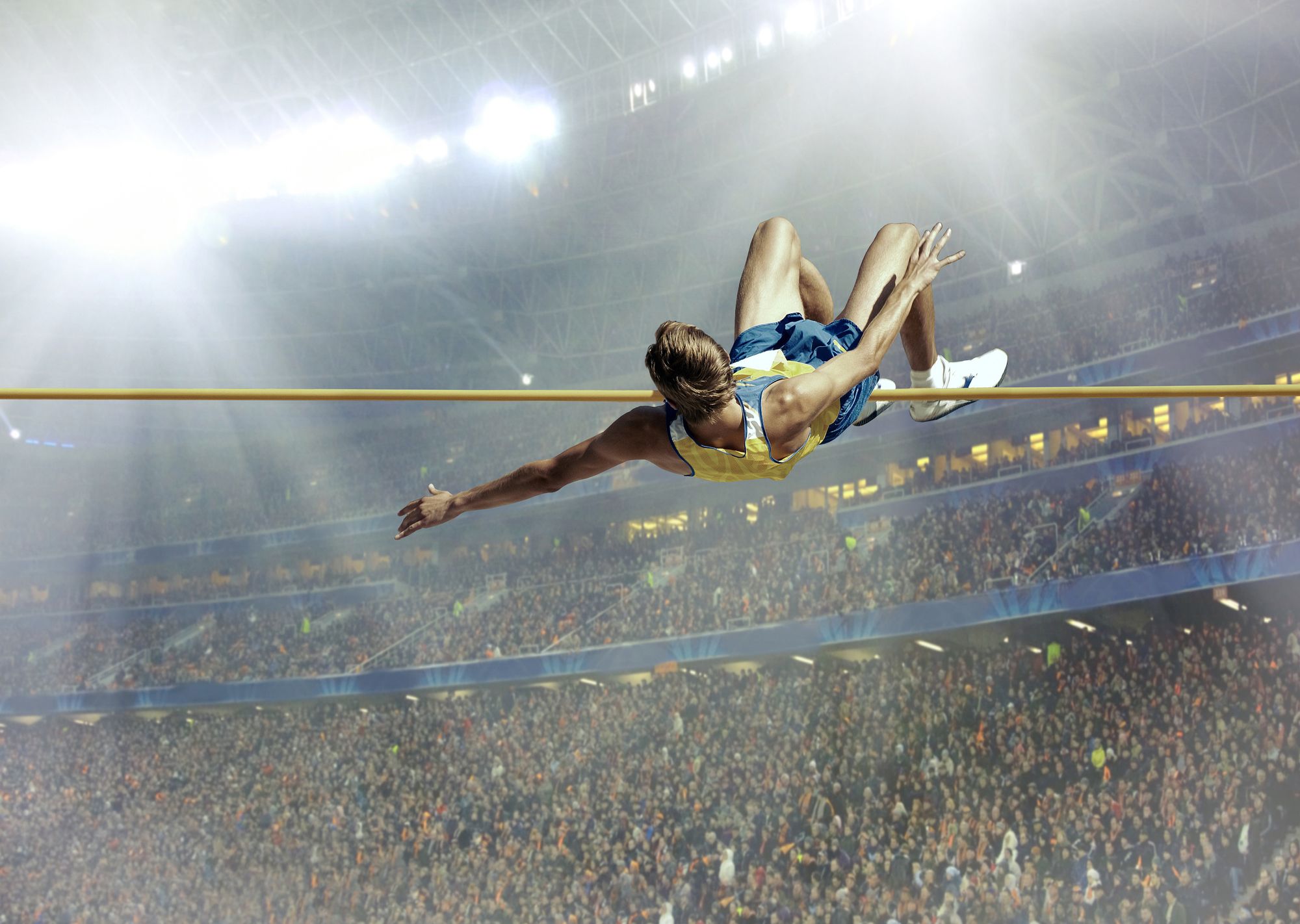
Key Ideas:
#1: The Foundation of All Learning
“The principles we've covered - neuroplasticity, specialization, association, chunking, and automation - are the foundation of all learning.
Our brain rewires itself through practice, creating clusters of neural connections composed of associations between thoughts, feelings, and behaviors that specialize in what we repeatedly do. When reinforced, these connections move from our conscious awareness to our subconscious, becoming almost automatic.
Then, our conscious mind is free again to process new tasks and add complexity to our growing abilities. Whether we go into French cooking, sculpting, or golf, these are the processes taking place behind the scenes as we learn. And they change the way we think as much as they change the physical structures of our brain."
The above principles are the foundation of all learning. I'll briefly describe each one right here, and then we'll move on to a discussion of one of the most powerful principles when it comes to application.
Neuroplasticity: This is the term for the human brain's ability to reshape itself based on what we experience and what we practice. It's one of the most awe-inspiring features of the brain - that it can literally transform and strengthen itself based on the inputs we give it.
Specialization: This refers to the process of the brain rewiring itself to perform certain tasks and activities more efficiently and effectively. We make progress on what we practice, so specialization will occur when we practice swinging a baseball bat, performing a dance step, etc.
Over time, as the neurons involved in this specific activity become myelinated (Key Idea #4), our technique and form flows more smoothly, we expend less and less effort in performing the action, and so on.
Association: Clusters of neural connections become associations, such that we learn to associate different inputs with certain outputs and sequences of behaviors with their natural results. You twist your hips as you're throwing a punch, for example, twisting on the balls of your feet at the same time, and this becomes an association that becomes less conscious and more automatic over time.
Chunking: When associations grow complex, they lead to chunking. By this, Nick means that in order to deal with this new level of complexity, our brains group together several different pieces of information rather than individually.
He uses the example of reading when we associate each letter with its sound and what they mean and sound like when they come together to form words. The complexity of this association grows until we're forced to "chunk" the information into words and sentences.
Automation: Over time, this process becomes more automatic, and we don't have to consciously process the sound of each letter or the muscle movement involved in swinging a baseball bat. We just read, or just swing.
This automaticity is what we associate with mastery, such as when we watch the "effortless" defensive maneuvers of Floyd Mayweather or the "artless" strokes of an Olympic swimmer. What they've learned to do is extend less raw brain power on performing these movements, and so increase their efficiency and overall effectiveness. This is what mastery looks like.
We'll talk more about forming and strengthening neural connections in Key Idea #4, but this neural process is the goal of practice. We're effectively turning our neural pathways into a speedway, thereby making them less conscious (and awkward), and more fluid and masterful.
#2: Focus on the Fundamentals
“Our focus must be on the fundamentals of our craft: the moves, knowledge, and techniques that are most frequently used and that make the strongest impact. These parts form the base for everything else and are essential for mastering the skill."
Masters never place themselves above the fundamentals. Amateurs believe that they're too "advanced" to practice dribbling or to brush up on their footwork, and so they're mildly shocked to see people like Kobe Bryant practicing dribbling and Mike Tyson spend hours and hours and hours perfecting basic boxing footwork.
Amateurs want to skip right ahead to being able to dunk and write the next Great American Novel and smash home runs, but masters go back to basics and develop the fundamental skills that make all the flashier elements of their sport or craft possible at all.
This is yet another manifestation of the 80/20 Rule, or the Pareto Principle, which states that 80 percent of the results will be driven by just 20 percent of the causes.
Mastering the fundamentals - to the extent that this is even achievable - is what makes mastery possible in the first place, and so we must never believe that we're too advanced to keep practicing the 80 percent. We're not.
#3: The Very First Skill to Master
"Meta-learning (learning how to learn) should be the skill that precedes all others. Knowing the principles and strategies of effective learning will maximize the time and energy we put into anything else, as well as optimize our work in improving and mastering our chosen craft."
Speaking of learning the basics, learning how to learn is literally what makes all other learning possible. As they say, if you have 60 minutes to chop down a tree, you should spend the first 55 minutes sharpening your axe, and that's what meta-learning is all about.
There aren't too many better books to introduce you to the principles behind successful learning than Make It Stick, so I highly suggest checking out my complete breakdown of that book here. It will demystify learning, as well as dispel many of the myths and falsehoods surrounding effective study habits.
Learning how to learn is probably the 1% of things you can study that's going to lead to 99% of your results, an extreme version of the Pareto Principle we spoke about in the last Key Idea. Knowing how to learn in the first place is going to put you ahead of so many of your competitors.
Not only that, but you'll be able to make even more progress, faster, and eventually you'll be so far ahead that no one who doesn't apply the principles of successful learning will ever be able to catch up to you.
#4: Turn Your Brain Into a Speedway
“When we practice, our brain changes to specialize, and the more we practice, the more pronounced the effect.
Imagine you are on a hike, and you come across a field of high grass. There's no path ahead, so you have to make your way through this grass to cross to the other side.
The next day, you go on the same hike and face the field again, but this time you see a trail of tamped-down grass made by the steps you took the day before. You follow the same route, and in doing so, you make it more accessible to walk next time. If you keep doing this for several days, that rough trail will turn into a smooth path. Neural pathways work in a similar way.
First, we create a primary neural connection for a behavior or thought process, the rough trail going from one neuron or group of neurons to another. But as we keep using the connections, they become faster and stronger, allowing information to move more efficiently from one side to the other.
Without getting too technical, this efficiency builds as a substance called myelin surrounds the neural connections we repeatedly use - a process called myelination. Myelin works as an insulator that supports stronger and faster signal exchange between neurons. The amount of myelin surrounding neural connections depends on the frequency of use. The more we use them, the more layers of myelin they get.
Myelination is the internal process for getting better at anything: through practice, we build layer upon layer of myelin on the neural pathways related to our skill, making them robust and specialized, the neural equivalent of turning a rough trail into a path. And if we continue our practice over the years, that path evolves into a speedway."
#5: Putting It All Together
“In essence, the process goes like this: We begin by exploring our chosen craft to get an overview and identify the parts that compose it. Next, we work on one or a few pieces at a time, first understanding and memorizing the concepts behind them, and then going into practice to transform the knowledge into abilities.
Whenever possible, we'll include simulations and rehearsals to work as a bridge between practice and execution. And finally, we take all our training and put it to use as we perform to the best of our ability, an indirect learning step that reinforces what we've worked on and provides us with feedback."
The process of skill acquisition has several moving parts, but the very first step is to gain an overview of which mini-skills make up the big picture.
If your goal is to become a great boxer, for example, you'll have to master various elements of the sport such as footwork, defense, head movement, jabs, hooks, cardio, and all the rest of it. Those are many of the parts that compose the larger skill of boxing as a whole, and you'll need to identify them all beforehand so you know what, specifically, you'll have to improve and work on.
You can't just work on "boxing"; you have to work on the parts that compose that skill, and it's better if you work on them one at a time, at least in the beginning. A good coach will teach you the theory behind what they're telling you to do, what you're aiming for, what you should watch out for, etc. Then, you practice! Again and again and again and again. And again!
You literally never move on from the fundamentals. You hammer them home, over and over again, until the elements of boxing become less "conscious" and more automatic. They'll move into longer-term memory as you keep practicing, and eventually, you'll become more fluid, precise, and skilled.
What comes after that is that you'll then "rehearse" (in this case, spar with others in the gym), and depending on your aspirations you'll move on to actual boxing matches, where the feedback will come in terms of "Did I win?" "Why did I lose?" "What can I work on to prevent that from happening the next time?"
Sparring and competing will make it glaringly obvious what it is that you still need to work on, and then you can go back and put in the work to shore up your weaknesses for next time. Repeat until you're a world champion, and keep repeating for as long as you want to hold the title.
#6: Fast Feedback Fuels Phenomenal Performance
“This point can’t be stressed enough: we need to take action on the feedback we get, and we need to do it soon after getting it."
If you were a singer, and you couldn't hear the notes you just sang until an hour or two after you had sung them, how much harder would it be for you to improve? Probably pretty damn hard!
Getting feedback on your performance - and your practice too, of course - is essential to getting better at anything, and it's most effective if we take action on it soon after getting it. Ideally, this feedback would be delivered by a great coach (or simply by observing our results, compared to the results we expected to get), and it would happen sooner rather than later.
That's part of what makes the internet such a fantastic tool. When you publish something online, it has the potential to reach a staggering number of people in a very short period of time, and if what you've shared has resonated with people (or not), you're going to hear about it awfully quickly. If you've created something amazing or something awful online, people will tell you. Fast.
Feedback is vitally important to gaining mastery, even if our work is mostly offline. That's also part of why seeking out mentors is so critically important, as they can be with you every step of the way, providing feedback, spotting errors that you can't see, and observing mistakes that you've missed or never would have noticed at all.
Furthermore, the faster this feedback loop operates in your practice regime, the faster you're likely to make progress on the road to mastery.
What you'll need to do here is relatively straightforward: find a trusted teacher, coach, or mentor, and seek out their constructive feedback. Implement their advice as soon as possible, note the changes in your results, and then go back for more.
#7: The Neverending Path to Mastery
“Remember, we'll eventually experience success and, with it, new types of challenges: complacency, overconfidence, fear. We can't let them derail us. We'll combat complacency by staying hungry, overconfidence by staying humble, and fear by staying focused on the process."
If Gustave Flaubert agonized over crafting the absolute most perfect sentence of which he was capable, and it took Marcel Proust 4,000+ pages and countless drafts to bring his masterwork to life and say what he wanted to say, what chance do we have of getting it perfect on the very first try?
There is always more to learn, always some way that we can improve, always some action that we could take to get better and get millimeters closer to mastery. There's always another bend in the road up ahead, and this is part of what makes life exciting. It's part of what makes the journey to mastery meaningful at all.
When Arnold Schwarzenegger said that in order to get a perfect body you'd have to go on forever, he was smiling when he said it! This is actually fantastic news! We get to keep doing the thing that means more to us than anything else in the entire universe! And we can keep on doing it until we take our very last breath on this beautiful green earth!
Personally, I never want to "have read" everything. I never want a "perfect" body. I never want to become a "master" writer or a "flawless" public speaker. Because, then what? I mean, after you're perfect, what do you even do?!
Perfection is fantastically boring, but the road to mastery is endlessly fascinating and intense. It's worth living for - worth giving your life for - and the danger we face is not that we'll ever be perfect and have nothing to improve, but that we will think we're perfect, and thus never make any more progress than we could have.
If you're supremely disciplined in following the steps as laid out in this book, you're going to become phenomenal at your chosen sport, skill, or activity. That's as close to a guarantee in life as you're ever likely to get. You put in the work, and you're going to get the results.
But perfection is promised to no one, and you still have to guard against the new, stronger enemies that you'll face, such as complacency, overconfidence, and fear. Even so, you never have to worry about defeating them, because you never will. Not totally. And that's the point.
Final victory over fear, complacency, and overconfidence is no more the point of practice than the point of dancing is to arrive at a particular spot on the floor, or the point of music is to get to the end of the song.

Book Notes:
“If people knew how hard I had to work to gain my mastery, it would not seem so wonderful at all."
-Michelangelo
“As to methods there may be a million and then some, but principles are few. The man who grasps principles can successfully select his own methods. The man who tries methods, ignoring principles, is sure to have trouble."
-Harrington Emerson
“Learning proceeds until death and only then does it stop...Its purpose cannot be given up for even a moment. To pursue it is to be human, to give it up to be a beast."
-Xun Kuang
“Throughout life, we make thousands of these associations between noises and concepts, developing fluency in our native language. These connections become so strong we can't separate them. If someone is talking to us in our native language, we can't help but interpret concepts and meaning instead of hearing noises."
“Automatic processing (aka automaticity) does not discriminate between desired behaviors and undesired ones. If we repeat bad habits or keep making the same mistakes, that's what we'll reinforce and automate - and they will be harder to correct later on. We must be careful, then, of what we automate to avoid transferring the wrong things into our subconscious."
“Attributing Mozart’s mastery to innate abilities is a disrespect to the lifetime of dedication he put into his craft."
“Learning and mastering a skill is a long-term process; a fast or slow start doesn't determine how far we'll go."
"What we do not understand we do not possess."
-Goethe
“Whenever possible, we should mix several input modes in our learning: have a coach or teacher explain it to us (explanation), watch others do it (observation), follow along (imitation), and then experiment on our own (experimentation). Using more than one input mode will for a stronger understanding and help with memorizing later."
“One of the best ways to understand something is by taking it apart and examining how its pieces fit together.”
“Memory is the treasury and guardian of all things.”
-Cicero
“Imagine there is only one road to your house. If that path gets blocked, you can't go home. (It doesn't mean your home disappeared; you just can't get to it.) But if there are many paths to it, if one gets blocked, you can take another one. Our memory works the same way.
If we have only one link to a memory and it fails, we'll lose access to it. (It doesn't mean it disappeared. We just can't reach it.) But if we have multiple pathways leading to it, we'll have more access, making it less likely to be 'forgotten.'"
“Emotions are powerful for creating lasting memories. Events or knowledge that trigger strong emotional reactions are more likely to go into our long-term memory than ones that don't.
Think of the most vivid memories from your life. They are full of strong emotions - good or bad. But events with no emotional charge fade into the background, too mundane to have an imprint in our memory."
“Strong emotions create strong memories, and we can use this to our advantage. If we are passionate, interested, and engaged in what we are learning, we'll create stronger memories."
“A shorthand for spaced repetition is that if we remember what we test - we recall the knowledge - we progressively increase the time between retesting. But if we don't remember, we need to review the material and restart the testing cycle.
Spacing out testing and reviews allows our knowledge to fade enough so that it's effortful to recall. And as mentioned earlier, it's the effort we put into it that strengthens our memories.
We also need some forgetting to benefit from further reviews. If we revisit material too often, we become familiar with it and assume we've memorized it, even if we haven't."
“It’s impressive how well our memory works when we feed it the input it's meant to process - images, space, emotions, and novelty."
“The main role of repetition is reinforcement, so, for it to be useful, we need to repeat the right things. That means building our abilities correctly in the first place."
“Deliberate practice has well-defined goals for the practice session. Practice should always have an aim, and it can't be as vague as 'to get better.' We need to know exactly what we want to work on and then design a session for it.
The goal could be to improve a specific part of the skill, fix a mistake or bad habit, or refine a difficult technique. What's important is to know what we want to achieve and then go after it. (It's not enough to simply show up.)
As an added benefit, having clear goals makes progress easier to track and notice, helping us stay motivated."
“Deliberate practice requires guidance. Closely related to following proven training techniques is having a coach or teacher to guide us through the process - someone who can show us the way, teach us those proven training techniques, and challenge us to be better. The value of a good mentor can't be overstated; they play a key role in developing our skills."
“Practice is most effective when we do it at the edge of our capabilities, where we reach outside our comfort zone."
"If what we are doing is too easy, we disengage from it and fall into repetition mode. But if it's too hard, we get frustrated, start to break good technique, and lose control trying to keep up."
"Deliberate practice happens on the sweet spot. Practice is most effective when we do it at the edge of our capabilities, where we reach outside our comfort zone. This is often called 'the sweet spot,' a point where our abilities are challenged enough to keep us engaged but not too much that it overwhelms us."
"How much should we challenge ourselves to reach the sweet spot? Dr. Csikszentmihalyi writes that the general thinking is to stretch our capabilities by about 4 percent. That's difficult to imagine, but the point he wants to make is that it doesn't take much.
For a more practical standard, we'll refer again to Dr. Ericsson. He describes the sweet spot as the place where we get things right between 50 percent and 80 percent of the time."
“Research on learning has made it clear: distributed practice is a better strategy for long-lasting learning. It's more effective to practice for one hour, five times a week, than to cram five hours of practice into a single day once a week.
Similarly, practicing three days a week for a month is better than doing it for twelve days straight and not practicing again until the following month."
“The question then becomes: how much time should we allow before practicing or studying the same thing? It depends. It's different for different people, different skills, and different levels of difficulty. There is no fixed rule, but here's the principle to follow: leave enough time so it feels effortful to remember but not so long that you forget most of it and have to relearn it."
“It’s hard to know which parts of your technique can be improved if you’re doing everything at once.”
“We make the most progress when we practice what matters now, what we can use now, and what we need now, at our current level."
"Nothing can be accomplished without solitude."
-Pablo Picasso
“Getting better at anything involves stretching beyond our capabilities, but also letting our mind recover and adapt to the newly gained territory.
Here we can use the analogy of building muscle. Weightlifting doesn't make the muscles grow; it only stimulates them to grow. The actual growth happens while we rest and recover, mostly during sleep.
Similarly, practice stimulates our abilities to grow, but the adaptation, consolidation, and actual growth happens while we rest and recover. That means breaks, recovery, and sleep should be considered active components of getting better at anything and must be an integral part of our practice plan."
“First consistency then intensity. Habits get built through long-term consistency instead of short-term intensity. Many of us try to practice too much too often in the beginning, making it more likely that we burn out and quit.
The right approach to building our practice habit is to focus on consistency first and adding intensity second - to start small and build upon it.
An example would be to start with short practice sessions a few times a week for a month and then lengthen the sessions or add more of them per week once we've established the habit. This progression is more effective in building a new habit than trying to cram our way into it."
“Plan for what is difficult while it is easy, do what is great while it is small."
-Sun Tzu
“The line between rehearsal and simulation is thin. Both forms of bridging center on recreating realistic conditions, but in simulation we are practicing individual parts of our skill (we choose specific things to work on, go over them repeatedly, start and stop as needed, and regulate the difficulty as we like), and in rehearsal, we are putting everything together the way we would in a real performance.
In rehearsals, we are not stopping and starting often (or at all), and don't get to choose specific parts to work on. Instead, we bring ourselves as close to 'real' conditions as possible while keeping the stakes low."
“Our aim during a performance is to let our abilities flow through us - to get out of our way so our mind and body can do what we've trained them to do."
“It takes discipline to follow our training, especially when the stakes are high and things are not going our way. But if we don't trust our training when it matters most, why put energy to go through it in the first place? Our training can't guarantee the results we want, but staying with it gives us the best chances of getting them."
“Our attitude after making a mistake should be: learn what you must, fix what you can, and move on as fast as possible."
“The power mistakes hold in our mind comes from thinking of them as defining, catastrophic, and beyond our capacity to deal with.
The strategy to manage these thoughts is to counter them by reminding ourselves that our mistakes do not define us, that they are likely not as bad as we think, and that we can recover from them.
In other words, that things will turn out fine most of the time - especially if we've prepared diligently. This attitude will encourage us to give our best and recover fast when we stumble."
“There are two types of feedback: one has to do with how well we do something (process feedback) and the other with the results we get from what we do (outcome feedback). Both are useful, but they require a different analysis."
“The most important condition for good feedback is that we need to get it fast. The longer it takes to get feedback, the less effective it becomes.
Imagine you are learning to sing but can't hear what you are singing until minutes later. Or imagine you want to paint, but you can't see the lines on the canvas until hours or days after you paint them. Such a delay would make it extremely difficult to get better at those skills."
"Make sure your worst enemy doesn't live between your own two ears."
-Laird Hamilton
“We make mistakes and fail more often when we are at the edge of our skill. They are proof that we are testing our limits, and that's a good thing. If we are not making mistakes, it's likely we are in our comfort zone and not pushing ourselves hard enough.
As Nobel laureate in physics Frank Wilczek once put it, 'If you don't make mistakes, you are not working on hard enough problems. And that's a big mistake.'"
"The body is shaped, disciplined, honored, and in time, trusted."
-Martha Graham
“All masters have more distinctions for what they do. They are attentive to details, which allows for a deeper understanding of their craft and more effective use of their abilities.
It works as a self-feeding circle: improving in their craft makes them more aware of nuances, and becoming more aware of nuances makes them better at their craft.
What's more, masters can pay attention to details without losing perspective. They can jump into the smallest things without drowning in them. They can zoom in and out as they need to, staying conscious of both the specific and the whole."
The Downard Spiral Question: "Do I feel like doing it today?"
“You’re going to be an Olympic champion in attitude long before there's a gold medal around your neck."
-Bob Bowman
“You gotta be the champion before you wear the belt.”
-Mike Tyson
“If you are gonna compete against me, you better be willing to give up your life, because I've given up mine."
-Tom Brady
“There’s no way to know how far the path will take us unless we follow it.”
“Better than a thousand days of diligent study is one day with a great teacher.”
“If we find ourselves thinking we are too good, a way to regain humbleness is to watch and study our idols. They are a great reminder that there's more path ahead, and we should get back to work."
“Becoming a master requires that we never feel like one.”
"All masters know there is more to do, more to learn, more to improve."
“I work harder than anyone who has ever lived.”
-Michelangelo
“It’s time to become the artist, athlete, or professional you've always wanted to be, and now you have the tools to make that happen. You know the process, understand the principles, and possess the strategies to learn, improve, and master your craft. You hold the method to create 'the magic.'"

Important Insights from Related Books:
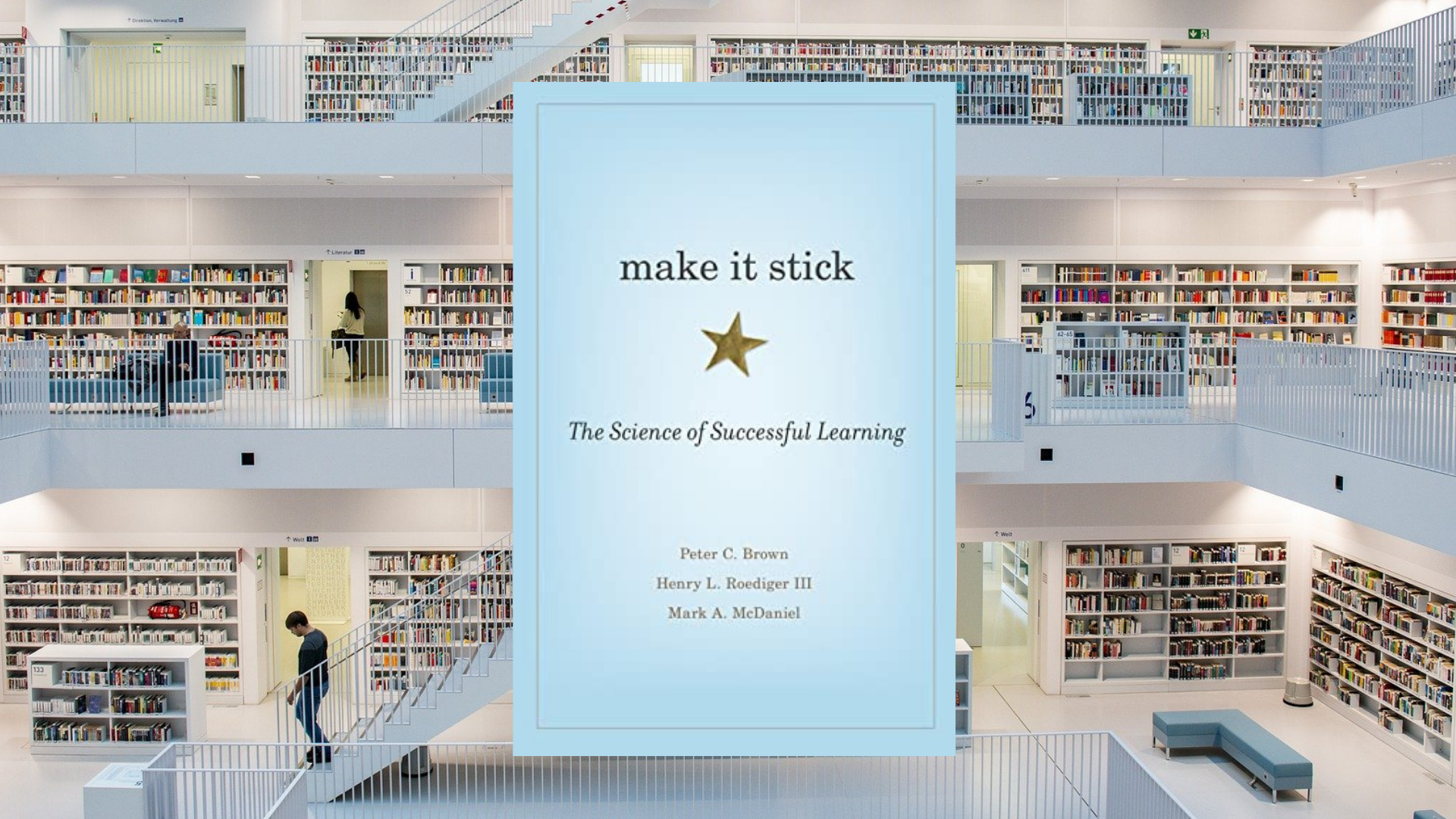
Make It Stick, by Peter C. Brown, Henry L. Roediger III, and Mark A. McDaniel:
Everything you want in life is on the other side of effort and sacrifice. In life, we appreciate what we worked hardest for, and in education, we remember what we struggled to learn.
That's one of the core messages in Make It Stick, which represents the gold standard when it comes to books about effective study strategies and efficient learning.
Basically, we remember the information that we recall to mind most frequently, and the more effortful it is to do so, the more entrenched it becomes in our minds and the less likely we are to forget it when we need to use it.
At the end of the day, the universe rewards effort, exertion, and striving. We need to go beyond what we think we can do if we want to find out how far we can really go.
This same theme - the hardest path usually being the best - shows up again and again in life, and Make It Stick will show you how applying that wisdom to your studying and your practicing will allow you to reach levels of mastery that are simply unavailable to people who aren't familiar with the science of successful learning.
Sample Quotes from the Book:
“Learning is at least a three-step process: initial encoding of information is held in short-term working memory before being consolidated into a cohesive representation of knowledge in long-term memory.
Consolidation reorganizes and stabilizes memory traces, gives them meaning, and makes connections to past experiences and to other knowledge already stored in long-term memory. Retrieval updates learning and enables you to apply it when you need it."
“Rereading text and massed practice of a skill or new knowledge are by far the preferred study strategies of learners of all stripes, but they're also among the least productive.
By massed practice, we mean the single-minded, rapid-fire repetition of something you're trying to burn into memory, the 'practice-practice-practice' of conventional wisdom. Cramming for exams is an example.
Rereading and massed practice give rise to feelings of fluency that are taken to be signs of mastery, but for true mastery or durability these strategies are largely a waste of time."
“There’s virtually no limit to how much learning we can remember as long as we relate it to what we already know. In fact, because new learning depends on prior learning, the more we learn, the more possible connections we create for further learning.
Our retrieval capacity, though, is severely limited. Most of what we've learned is not accessible to us at any given moment. This limitation on retrieval is helpful to us: if every memory were always readily to hand, you would have a hard time sorting through the sheer volume of material to put your finger on the knowledge you need at the moment."
Read the Full Breakdown: Make It Stick, by Peter C. Brown, Henry L. Roediger III, and Mark A. McDaniel
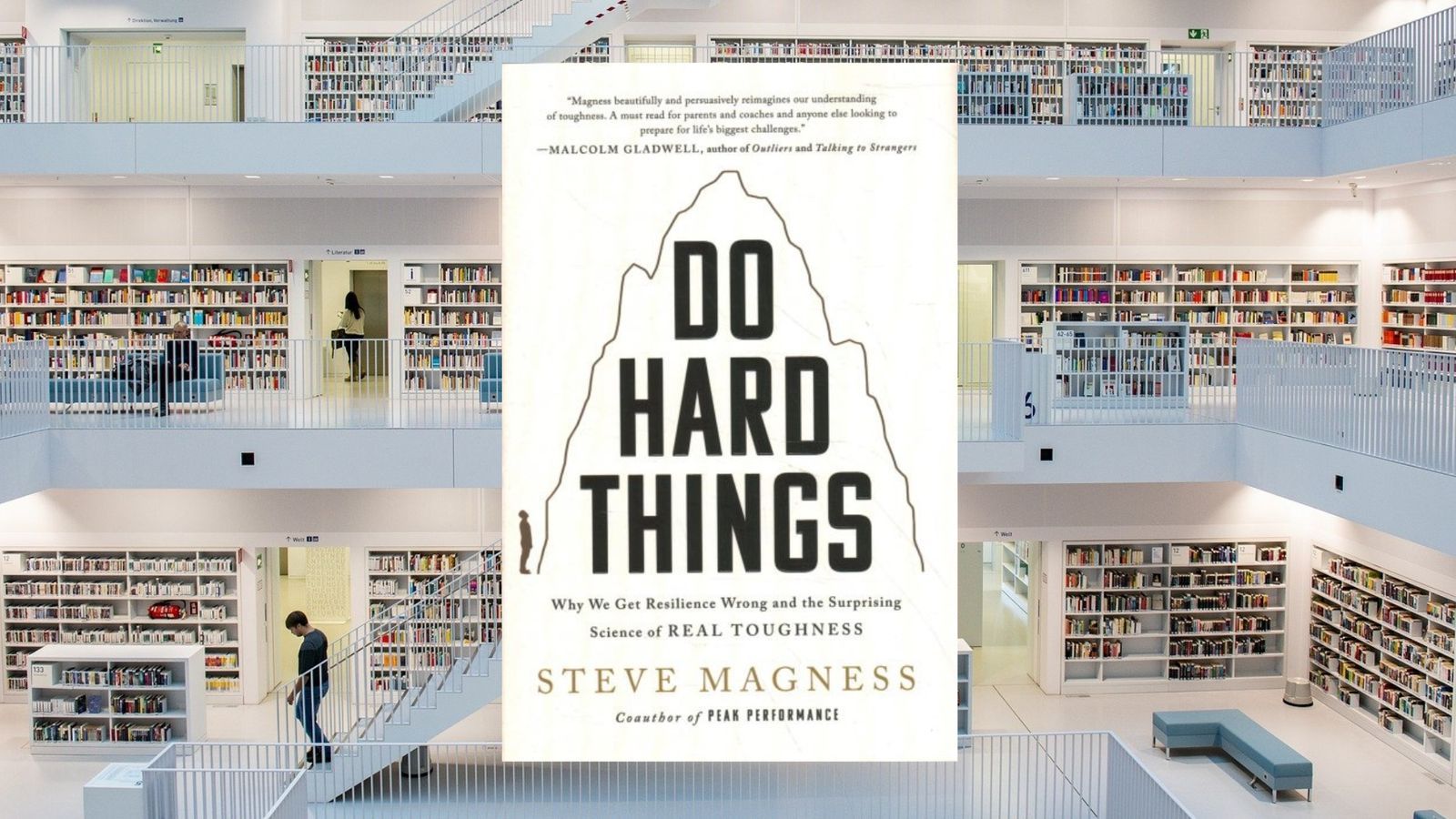
Do Hard Things, by Steve Magness:
We've never really understood the true nature of mental toughness until now.
Before Steve Magness and the pioneering scientists whose research he presents in this book came along, we've seen only one side of it, and this book will show you that there's more to toughness than we usually realize and more inside you than you've ever known.
The old model of mental toughness was based on fear and ridicule, shame and doubt. It was based on hiding all evidence of weakness, and the old style of coaching and leadership involved yelling and screaming at people until they get closer to what we wanted them to be - not for the purpose of allowing them to reach their full potential.
That changes today, and it changes with this book, Do Hard Things.
Steve Magness is a high-performance coach and scientist who works with Olympic athletes and people of comparable ability and prowess, and his book is a compelling and useful attempt to "fix" our old definition of mental toughness and replace it with something more flexible, more insightful, and ultimately, more useful.
Do Hard Things draws from the very latest in science and psychology to teach us how we can work with our body, emotions, and feelings, and how we can shift the very meaning of discomfort in our minds by leaning in, paying attention, and allowing ourselves the mental freedom to perform at the highest level of which we are capable.
The new model of toughness is all about embracing reality, listening to what our body is trying to tell us, responding instead of reacting, and transcending discomfort by tapping into the deeper meaning behind it all. The old model made everything look like a nail, so the only tool it could offer us was a hammer.
There's everything in this book from mindfulness, military case studies, psychology, neuroscience, philosophy, and more, and it all comes together in a wonderful book that ends up being more growth-focused, intent on building you up, rather than tearing you down. Focusing on what's right with you, what you can accomplish, rather than what you lack or what is temporarily out of reach.
You already have everything you need within you in order to become more resilient, stronger, tougher, more flexible, and more adaptable. To paraphrase the great psychologist, Abraham Maslow, toughness isn't about adding something to you that isn't there already, it's about acting, striving, and competing as the person you are...with nothing taken away.
Sample Quotes from the Book:
“The old model of toughness, in essence, throws people into the deep end of the pool but forgets that we need to first teach people how to swim.”
“Real toughness is experiencing discomfort or distress, leaning in, paying attention, and creating space to take thoughtful action. It’s maintaining a clear head to be able to make the appropriate decision.
Toughness is navigating discomfort to make the best decision you can. And research shows that this model of toughness is more effective at getting results than the old one.”
“A key component of real toughness is acknowledging when something is hard, not pretending it isn’t.
An honest appraisal of ourselves and the situation allows us to have a productive response to stress. It can shift whether our body is pushed toward fear or excitement, challenge or threat. And in turn, whether we’ll take a risk, shy away, or be able to access our full potential.”
Read the Full Breakdown: Do Hard Things, by Steve Magness
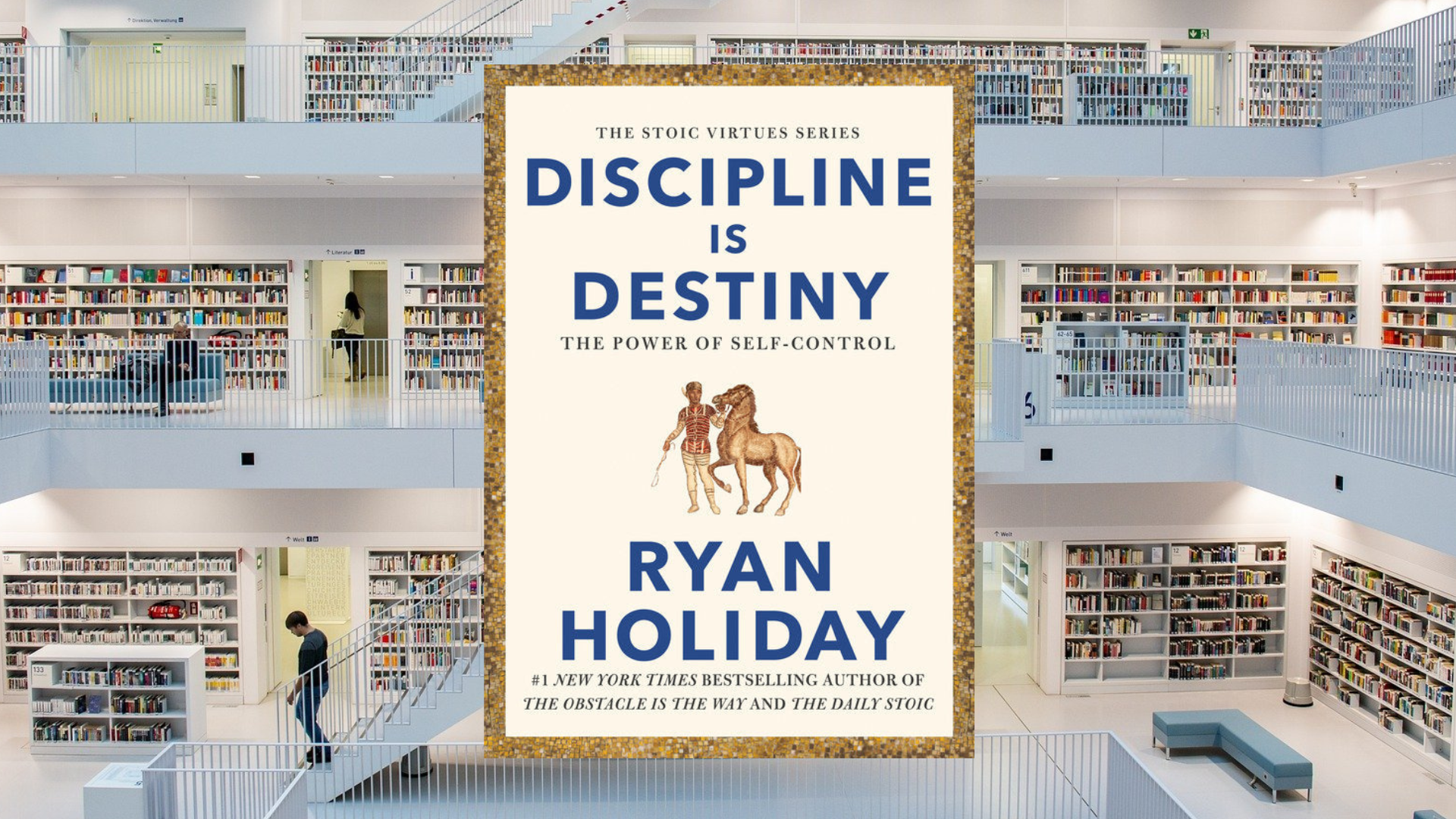
Discipline is Destiny, by Ryan Holiday:
Self-discipline has traditionally been a hard sell. Self-indulgence, quick dopamine hits, and having a good time have been winning the marketing battle lately, similar to the "battle" between chocolate and asparagus. Or between reality television and educational documentaries.
But what if the problem is simply that we've been thinking about self-discipline in entirely the wrong way?
Up until now, self-discipline may have been the equivalent of a Henry James novel in a TikTok world. But Ryan Holiday's book, Discipline is Destiny, will have you reimagining the whole concept in a much more liberating, fulfilling way.
His aim is to teach you how to harness the powers of self-discipline to fulfill your personal destiny. While everyone's destiny is fundamentally different, everyone's destiny is the product of self-discipline. Your habits shape your character, and your character shapes your destiny, so Ryan's book goes right to the root and gives you the physical, mental, and emotional skillsets for success.
In the final analysis, self-discipline is prescriptive. It will show you your future. Your environment, actions, habits, and mindsets are constantly shaping your destiny, and this book will show you how to guide this process more intelligently.
This involves thinking of self-discipline in the "proper" way: not as a punishment, as self-deprivation, but as it really is: a pathway to even greater freedom.
Some days will be hard. Actually, that's not true...many days will be hard. The hard days will outnumber the easy ones, but the meaningful days will also outnumber the meaningless ones. Living this way won't always be easy, but it will always be worth it.
Sample Quotes from the Book:
“Think about it: Most people don’t even show up. Of the people who do, most don’t really push themselves. So to show up and be disciplined about daily improvement? You are the rarest of the rare.”
“You don’t have to always be amazing. You do always have to show up.”
“How much progress could you make if you made just a little each day over the course of an entire life? What might this journey look like, where might it lead, if each bit of progress you made presented both the opportunity and the obligation to make a little more progress, and you seized those opportunities, you lived up to those obligations, each and every time?”
Read the Full Breakdown: Discipline is Destiny, by Ryan Holiday

Finite and Infinite Games, by James P. Carse:
"There are at least two kinds of games: finite and infinite. A finite game is played for the purpose of winning, an infinite game for the purpose of continuing the play."
Thus begins one of the most endlessly fascinating philosophy books you're ever likely to come across - and one that can impact your life in ways that you can't unsee once you've seen them for the first time.
The themes explored in Finite and Infinite Games range from the difference between "education" and "training," and between "power" and "strength," to the nature of evil, our responsibilities towards others, and more. It touches on every part of life, but the final chapter consists of just one single sentence:
"There is but one infinite game."
By this, Carse means that all life, throughout the universe and all creation is bound up in the Infinite Game. And as Alan Watts said,
"You are something that the universe is doing, in the same way that a wave is something that the whole ocean is doing."
You are all of it, and every single "player," so to speak, is infinitely valuable to the functioning of the rest of the cosmos. There are no "extra" players in the game of Life, we're all just figuring this out as we go along, and our greatest adventures lay still further ahead.
Sample Quotes from the Book:
“There is no finite game unless the players freely choose to play it. No one can play who is forced to play. It is an invariable principle of all play, finite and infinite, that whoever plays, plays freely. Whoever MUST play, cannot PLAY.”
“What seems necessary is often only possible.”
“No one can play a game alone. One cannot be human by oneself.”
Read the Full Breakdown: Finite and Infinite Games, by James P. Carse

The View from the Opposition:
No one's ideas are beyond questioning. In this section, I argue the case for the opposition and raise some points you might wish to evaluate for yourself while reading this book.
#1: "Well Yeah, Obviously..."
Learn, Improve, Master receives a consistently high rating across all platforms such as GoodReads, Amazon, etc. There just aren't too many valid criticisms you can level against the book - it's pretty solid. That being said, a few of the same comments surface here and there, and they're not exactly wrong.
One thing that people say about the book is that it reads like a manual, which, to me, is kind of the point! It's a handbook for achieving mastery, and you can't fault Nick if it's not also the greatest most fascinating narrative you've ever encountered. You read this book if you want to become extremely proficient at something that's important to you, and you read a novel if you want to be entertained. So there's that.
Some other people say that it could have been condensed, which, again, I don't really see how. I mean, it could be, sure, but you read books because you want to go deep into a topic, and there are very, very few wasted words in Nick's book.
Still more people say it's not all that original, and, yet again, I have to come to Nick's defense on this one and just say: He's not a research scientist! It's not his job to come up with some revolutionary new theory about skill development; it's to provide you with everything you need to know to achieve mastery in your chosen endeavor, and at this, the book succeeds beautifully.
"The test of a first-rate intelligence is the ability to hold two opposed ideas in the mind at the same time and still retain the ability to function.”
-F. Scott Fitzgerald

Questions to Stimulate Your Thinking:
The quality of your life is determined by the quality of your questions. That's also how you get the absolute most out of any book that you decide to read:
You ask great questions the whole time - as though the book was on trial for its life.
Here in this section are a few questions that can help guide and stimulate your thinking, but try to come up with your own additional questions, especially if you end up deciding to read this book the whole way through...
#1: "Why do you want to gain mastery in the first place? Is it for the external rewards of money, fame, recognition? The pride of excelling in something meaningful? Just a feeling you have that the effort itself might be worth it? Something else? Can you articulate it?"
#2: "What's the hardest you've ever worked at achieving something difficult and/or meaningful? Are you willing to go beyond that?"
#3: "What are you willing to sacrifice in order to attain mastery?"
#4: "What activities or pursuits are you naturally drawn to? Are you willing to give up a tremendous amount of freedom and time in order to excel in one or more of those pursuits?"
#5: "Do you believe in your own ability to make progress and to eventually succeed, no matter where you're starting from or what lies ahead of you? Or do you believe that people either have it or they don't?"
#6: "How teachable are you? Are you willing to cede control to a coach, teacher, or mentor, and trust that they know more about the road ahead than you do? Are you willing to follow their instructions to the letter, and to dive headlong into the work they demand from you?"
#7: "Do you have - or are you part of - a great support network full of people headed in the same direction as you are? If not, where can you find these people?"
#8: "What can you do to speed up your progress toward mastery? Are you willing to do it? Do you have ethical boundaries, beyond which you're not willing to venture, that specifically define what you are and are not willing to do in order to win?"
#9: "What would make all the terrible workouts, the long, tedious study sessions, and the lonely nights worth it in the end?"
#10: "Do you really, truly and honestly, know what your absolute best actually looks like? Are you sure? Are you willing to find out?"

Action Steps:
So you've finished reading. What do you do now?
Reading for pleasure is great, and I wholeheartedly support it. However, I am intensely practical when I'm reading for a particular purpose. I want a result. I want to take what I've learned and apply it to my one and only life to make it better!
Because that's really what the Great Books all say. They all say: "You must change your life!" So here, below, are some suggestions for how you can apply the wisdom found in this breakdown to improve your actual life.
Please commit to taking massive action on this immediately! Acting on what you've learned here today will also help you solidify it in your long-term memory. So there's a double benefit! Let's begin...
#1: Ask a Practitioner to Help You Build a Map
When you're first starting out, one of your main priorities will be to get an overview of what's involved when it comes to learning and performing your chosen skill, and one of the best ways to do that is to ask someone who's already done it.
Usually, you'll find that people are more than happy to help you, and many of them will feel especially honored that you've taken an interest in something that clearly means so much to them. Most people are helpful and friendly, and so you should go ahead and ask people who are at least slightly ahead of you about what you should know.
What you're looking for is any information they can give you that's going to be helpful as you embark on the learning process yourself. Things like which mini-skills the main skill can be broken into; challenges that are looming ahead and mistakes that beginners usually make; how much time you should expect to have to devote to mastering each mini-skill, etc.
What's in store for you as you begin to take this skill or activity more seriously? What should you pay special attention to, and how can you benefit from the person's experience? Those are the kinds of things you're trying to find out in this preliminary step.
#2: Make Your Practice Habit Convenient to Do, and Inconvenient to Break
Most habits are easy to do, but they're also easy not to do, which is why you have to pay special attention to how you structure your habits.
If this new skill is important enough to you, you're naturally going to have more motivation to practice than you would otherwise, but motivation is so much less powerful than discipline. Motivation comes and goes with how you feel, but discipline - and an excellent support network - will always be there for you.
Having a mentor - someone you do not want to disappoint or let down - can work spectacularly well for getting you to stick to a practice schedule. There are also other "commitment devices" you can use, such as stating publicly on social media that you're going to do something, or pledging that you're going to donate money to a charity you find abhorrent for every time you skip practice.
Whatever you decide on, there should be real consequences for abandoning your plan, and it should be more inconvenient or painful for you to renege on your commitments than it would be for you to just do what you said you were going to do in the first place.
#3: Adjust Your Level of Difficulty
As you proceed along the path to mastery, you're going to notice that you do better in some areas having to do with your chosen skill than in others. Especially while working with a competent mentor, you're going to become painfully aware that you need more work here rather than there.
The right move at this juncture is to pay special attention to your weaknesses and do what you can to turn them into strengths. Whether that's shooting hundreds of free throws one after another in basketball, or working on your vibrato while playing the violin, you can structure your practice sessions in such a way that you work to overcome these limitations.
Then, once you've improved satisfactorily in that area, you can move on to your next weak spot and repeat the same process. Repeat for as long as you never want to remain average.
#4: Track Your Performance Across Time
The greatest bodybuilders in the world track every single workout, and they never enter the gym without a plan and an idea of what they want to improve.
Famously, Dorian Yates has training notebooks dating from the 1980s where he recorded things like what he ate that day, how many reps he performed of each exercise, what he felt like during each training session, etc. And not surprisingly, he won the Mr. Olympia contest six times in a row from 1992 to 1997. This is not a coincidence.
The best way to manage anything is to track how you're doing now, whether that be your time, your sleep, or anything else you can think of to track. Whatever system you use to do this doesn't need to be complicated, but you do need to do it.
This even works for artists like painters and filmmakers. Hold on to your very first artwork and your very first videos. See the progression across time. Notice how far you've come, rather than judging yourself based on how far you still have left to go. Keep first drafts saved on your computer, save your training logs - everything.
#5: Work Until You Achieve Overnight Success
They say overnight success takes about ten years. Well, mastery takes a lifetime, regardless of what you achieve along the way, and one of the most powerful practices you can ever adopt is to make a habit of promising yourself - every single day - that you will never, ever, ever give less than your absolute best in whatever it is that you do.
You must never, ever let yourself down, and though you are allowed to switch sports or change pursuits, it should never be because it was "too hard" and you didn't feel like doing your best. That's the only thing that's unacceptable.
The universe is structured in such a way that, if you're consistent enough for a long enough period of time, you will be rewarded. That's just how the world works. You're going to get somewhere. Just. Don't. Stop.


About the Author:
Nick Velasquez is a passionate learner and devoted student of mastery. He’s the author of the popular blog UnlimitedMastery.com, where he writes about learning science, peak performance, creativity, and mastering skills. His writing has been featured in outlets such as TIME and Thought Catalogue. Nick speaks multiple languages and spends his time between Tokyo and Montréal.
Additional Resources:
UnlimitedMastery.com | Main Website
Read a Free Chapter from Learn, Improve, Master
Mastering Habits | Online Course by Nick Velasquez
This Book on Amazon:
Learn, Improve, Master, by Nick Velasquez
If You Liked This Book:
Make It Stick, by Peter C. Brown, Henry L. Roediger III, and Mark A. McDaniel
Do Hard Things, by Steve Magness
Discipline is Destiny, by Ryan Holiday
Discipline Equals Freedom, by Jocko Willink
Finite and Infinite Games, by James P. Carse
Doing the Impossible, by Patrick Bet-David
The Pleasures of Reading in an Age of Distraction, by Alan Jacobs
Put Your Ass Where Your Heart Wants to Be, by Steven Pressfield

